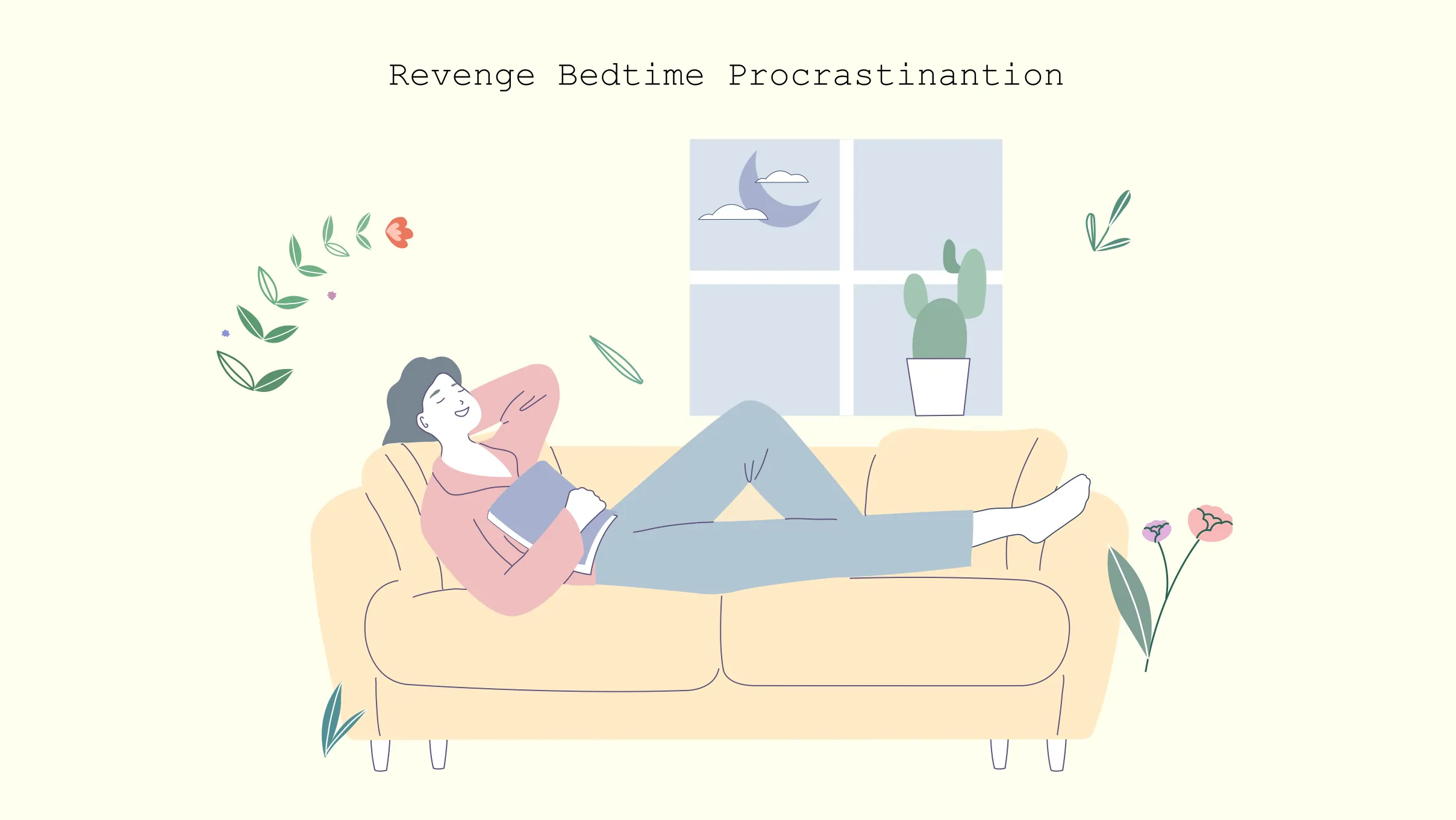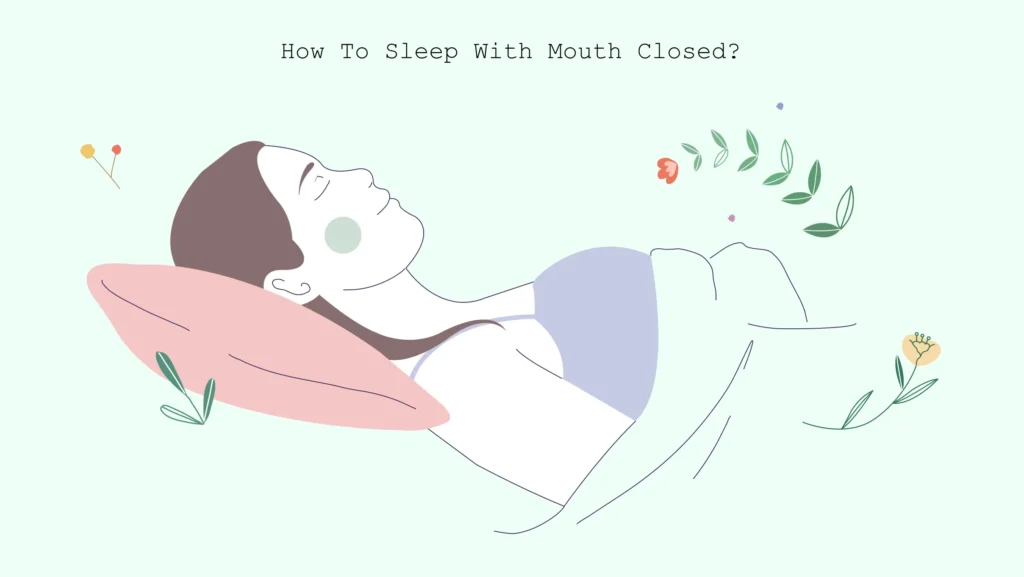Revenge Bedtime Procrastination: Everything you Need to Know
Written by


It is not uncommon for many super busy individuals to go late to bed and then lay awake despite being tired to the bone. In search of some ‘me’ time, you often opt for reading a book, watching a movie, etc. Consequently, you sleep in the wee hours and rise early for the next busy days.
This behaviour is nothing but revenge bedtime procrastination. Unfortunately, it is increasingly becoming more prevalent and giving rise to plenty of physical and mental health problems. Here, we investigate various aspects of it. Stay tuned!
What is Revenge Bedtime Procrastination?
Revenge bedtime procrastination is the phenomenon of sacrificing sleep time for leisure and pleasurable activities. The phenomenon entails:
- Reduction of total sleep time for the night.
- No accountable practical reason or external circumstances for doing so.
- Continuing the behaviour despite knowing that it can have negative consequences.
Researchers were first introduced to the term ‘bedtime procrastination’ in a 2014 paper, but the revenge spin is a new twist added to it. The term is believed to originate from the Chinese expression “bàofùxìng áoyè,” which took social media by storm. However, its translation in English is “revenge bedtime procrastination” or “retaliatory staying up late.”
The term was used by the journalist Daphne K. Lee in a viral tweet. The term has been popular and garnering attention ever since.
Psychology Behind Bedtime Procrastination
Sleep procrastination is the latest and trending topic in sleep science. Consequently, there are several ongoing research and debate about the psychology behind the phenomenon.
Victims of revenge bedtime procrastination generally desire adequate and restful sleep but cannot do so. It is referred to as intention- behaviour gap.
Researchers have not been able to pinpoint one specific psychology behind sleep revenge but are considering a few mindset behaviours like:
1. Lack of Self-Regulation or Self-Control
Our self-control capability is usually the lowest at the end of the day. Due to it, some are generally inclined to bedtime procrastination, while super-busy individuals leading a stressful life find all reserves of self-control almost empty at night. Hence, they keep awake.
2. Night Owls
Few people are naturally inclined to remain awake at night. People who tend to procrastinate their work also fall into this category. They will try to sleep as late as possible and deprive themselves of essential sleep.
3. Blurred Line Between Work & Home
This theory has gained strength due to the covid pandemic in recent times. Due to the work-from-home culture, professional work hours have been significantly extended, making professionals feel that they are always at work. This work-induced stress deprives them of their leisure time and has led them to seek personal ‘me’ time by procrastinating sleep.
The term ‘sleep revenge’ is derived from this behaviour as the person tries to steal the time he was deprived of during the day.
Causes of Bedtime Procrastination
The psychology and causes of revenge bedtime procrastination are interlinked and overlap with each other. They can be listed as:
- Procrastinating nature of a person in all aspects of life
- Leading a hectic and stressful life with no ‘me’ time
- Difficulty in self-regulation
- People who are naturally prone to be a ‘night-owl’
- The blurred line between home and work hours due to the covid pandemic
- A cumulative result of several factors like a person’s natural sleep schedule, stress, medical issues, etc.
- The trap of Hustle-Hard Culture
Human beings tend to take sleep for granted. Thanks to social media, we have realised that sacrificing sleep is the secret to success. Hence, despite being aware of the negative consequences, we happily sacrifice sleep and only slow down when things have taken a serious turn. We happily fall into this hustle-hard culture.
What Behaviours Are Associated with Bedtime Procrastination?
Before we move on to how to fix revenge bedtime procrastination, let us understand some tell-tale signs and behaviours that indicate the revenge bedtime procrastination symptoms.
- Insufficient sleep or sleep deprivation.
- Prone to daytime sleepiness.
- Degradation of memory, thinking-ability, and decision-making power.
- Deterioration of productivity and academic achievement.
- Increased risk of drowsy driving and accidents.
- General irritability with a high level of stress and anxiety.
How It Could Affect Your Health?
For optimal functioning, cognitive function, and physical and mental well-being, sleep is necessary. And sleep deprivation is a major symptom of revenge bedtime procrastination and can impact your health adversely. It causes minor to major problems like:
- Weight gain and obesity
- Diabetes due to increase in insulin resistance
- Heart diseases
- High blood pressure
- Weaker immunity system due to decrease in production of cytokines.
- Hormone-related problems
- Anxiety
- Depression
- Worsening memory and difficulty in focusing
- Vulnerable to bipolar disorders
- Increase in body inflammation
- Reduced effectiveness of vaccines
- Ongoing body pain
- Raised chances of early death
These are just some of the health problems that can aggravate. You might face many other health issues, and your current medical condition can also worsen if you are not going to bed and sleeping on time.
How to Prevent Sleep Procrastination?
Understanding the dangers of revenge bedtime procrastination is crucial to becoming aware of it and overcoming it. Therefore, we list a few valuable tips on how to stop revenge bedtime procrastination.
- Strive towards imbibing healthy sleep hygiene.
- Maintain a consistent schedule of going to sleep and waking up at the same time, even on weekends.
- Limit daytime naps to less than 30 minutes and always before late afternoon.
- Abstain from coffee, alcohol, and tobacco from late afternoon.
- Abstain from using all electronic devices for at least an hour, and preferably two hours before bed.
- Avoid eating big and heavy meals before sleeping.
- Avoid drinking too much water before sleep.
- Create a sleep-inducing bedroom environment with dim lights, no electronic lights or noises, and pleasant room temperature.
- Listen to sleep-inducing noise like white noise to mask any disruptive noise and help you sleep.
- Ensure you have ‘me’ time during the day to resist the revenge mentality. Give yourself as much priority as you would to your work.
- Plan enjoyable and tiring activities during the day so that you feel happy and satisfied at night.
- Try ‘brain download’ by writing a journal. It helps you get all your thoughts, worries, and stress out of your mind.
- Connect to your intention and deliberately work yourself to positive thoughts and sleep on time.
- Try relaxing activities like sleep-inducing exercises, reading a book, listening to soothing music, etc., to help you sleep better.
- Consulting a doctor and taking medicines if nothing is helping.
Conclusion
Poor sleep is the root cause of most physical and mental issues. Hence, it is vital to recognise and address revenge bedtime procrastination before its consequences become too severe. The key to it is being kind to yourself and giving yourself as much importance as other things.
FAQs
Is revenge bedtime procrastination a real thing?
Yes, the revenge bedtime procrastination phenomenon is real and is increasingly seen in a growing percentage of the population. Women and people in high-stress jobs are more prone to it.
Do people with ADHD procrastinate sleep?
A major symptom of ADHD is poor self-regulation ability. It gives rise to a host of issues like hyperfocus, impulsivity, problems with transitions, dopamine-seeking behaviour, etc. Revenge bedtime procrastination becomes a natural consequence of these negative symptoms.
How do you enforce bedtime?
Thinking and creating bedtime discipline strategies and sticking to them with a mindful dedication is the best way to enforce bedtime. For it, you must always go to bed and wake up at the same time every day with a buffer of 15-30 minutes.
How do you stop a bedtime battle?
Sticking to a consistent sleep schedule, adopting healthy sleep hygiene, and sending positive reinforcements to your mind are some of the ways to help you stop a bedtime battle.
What are poor sleep habits?
An irregular sleep schedule, taking long naps in the afternoon, consuming coffee, alcohol, or tobacco after dinner, browsing mobile, watching TV in bed, etc., all constitute poor sleep habits.
What is the healthiest sleep schedule?
The healthiest sleep schedule is going to bed, waking up at the same time every day, and having at least seven hours of sleep every night.
people like this article
Written by








